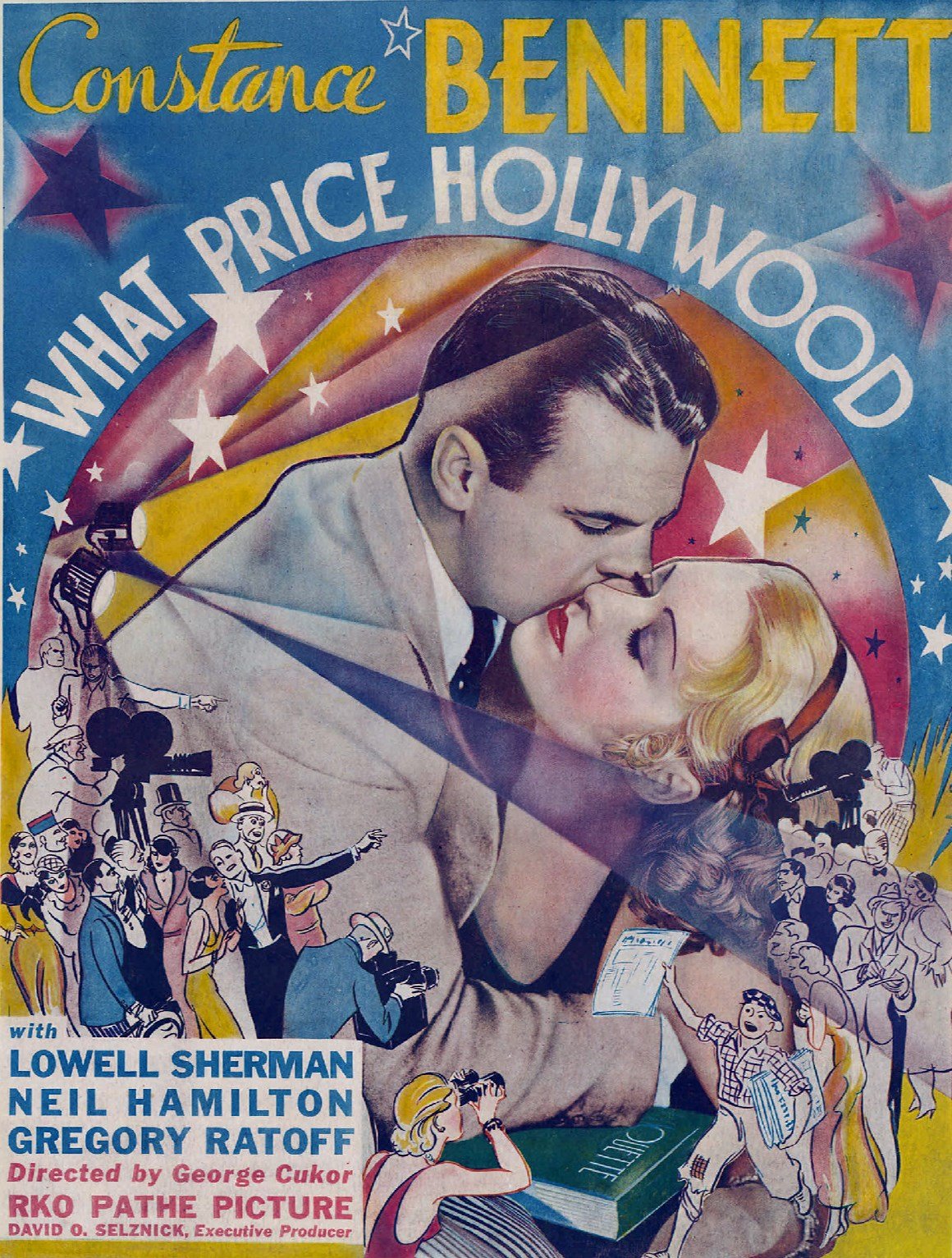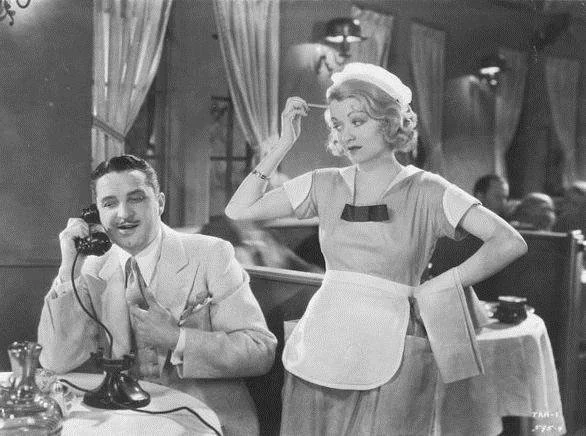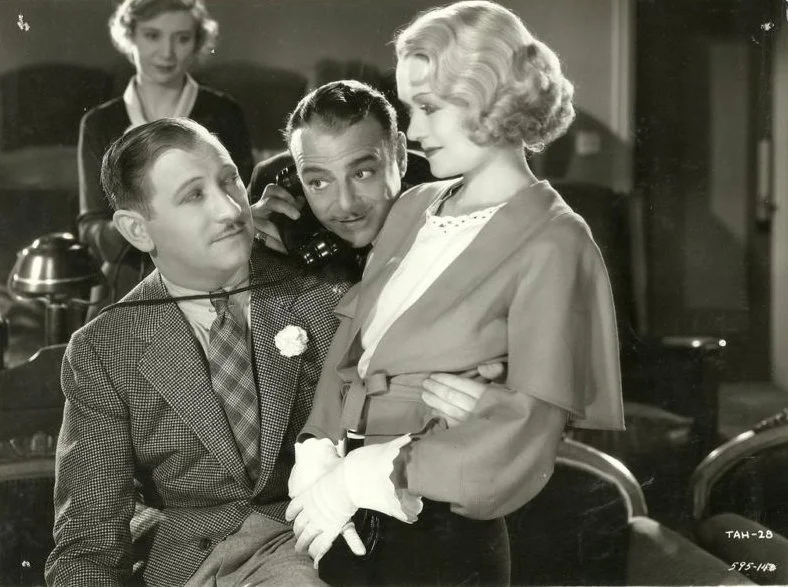Before A Star Is Born There Was 1932's What Price Hollywood?
The official history of A Star is Born is long and distinguished, stretching out over a little over eight decades and four films that have separately and collectively left an enormous imprint on American film and American pop culture. The four films entitled A Star is Born played huge roles in the larger-than-life mythologies of screen legends and pop icons like Frederic March, Janet Gaynor, James Mason, Judy Garland, Barbra Streisand, Kris Kristofferson, Bradley Cooper and Lady Gaga.
The unofficial history of A Star is Born stretches back even further. The very first A Star is Born, William Wellman’s Dorothy Parker-co-written 1937 masterpiece, wasn’t really the first A Star is Born when it comes right down to it. No, that distinction unofficially belongs to the crackling, bitterly funny pre-Code 1932 romantic tragedy What Price Hollywood?
What Price Hollywood? (you’ve got to love a movie title that’s also a question and a searching moral interrogation of an entire industry) differs from the four versions of A Star is Born in some key ways, most notably in the love triangle that takes up entirely too much of its brisk, 90 minute runtime. But the racy expose of Hollywood’s cruel indifference to the soused suffering of its tortured dreamers and dream-spinners uncannily resembles the classic Hollywood story in ways that border on legally actionable.
According to Hollywood lore, the writers of What Price Hollywood? recognized so much of their own work in A Star is Born that RKO, the studio that produced it, contemplated suing the filmmakers of the oft-remade smash. Furthermore, George Cukor was reportedly offered an opportunity to direct the first A Star is Born but demurred on the grounds that it was too similar to his earlier film.
If A Star is Born is creative cannibalism then it’s at least self-cannibalizing. It seems safe to assume that A Star is Born super-producer David O. Selznick was familiar with What Price Hollywood? since he’d produced that film as well and while Cukor said no to the 1937 version of A Star is Born he said yes to the 1954 musical remake, resulting in one of his best, and best loved films.
Depending on your perspective, 1937’s A Star is Born either built upon, or shamelessly plagiarized a movie that flopped at the box-office a mere five years earlier. A radiant Constance Bennett is a mesmerizing combination of girl-next-door relatability and continental sensual sophistication as the movie’s answer to A Star is Born’s Esther Blodgett, Mary Evans, an ambitious young social climber whose body may be in legendary restaurant and hangout The Brown Derby, where she toils as a waitress, but whose sharp, calculating mind is single-handedly focused on becoming a Hollywood movie star.
She’s a sly, savvy dreamer in need of a dream-maker. One comes stumbling drunkenly into her life one eventful evening when mercurial, controversial and self-destructive director Maximillian 'Max' Carey (Lowell Sherman) barrels through the Brown Derby’s doors one night deep into what appears to be a never-ending bender that has seemingly lasted years, if not decades.
Though inebriated to a point of black-out drunkenness, the bad boy filmmaker with the rakish mustache and smart mouth becomes besotted with the gorgeous, spirited server and, more or less on a whim, helps her become an overnight movie world sensation. Over the course of a single, wildly influential star-making montage, our heroine goes from unknown overjoyed just to be getting a screen test to a major movie star, “America’s Pal” as she is popularly and delightfully known to her adoring public.
Like A Star is Born, What Price Hollywood? took voyeuristic audiences behind the big screen and deep into the sometimes glamorous, sometimes tedious way that movies, stars and movie stars are made. Mary enters the studio system a big-dreaming unknown and is transformed by publicists and craftsman and producers and directors into a glittering figure of glamour and romance for ordinary Americans to project their fantasies upon.
The last three versions of A Star is Born have re-invented this quintessential American showbiz story as fundamentally musical in nature, as showcases for world-class divas whose booming voices angrily, very loudly demand to be heard by a public breathlessly waiting to adore them.
True, Bennett slinks her way through a French ditty that conveys just how far she’s come from her humble origins slinging hash and re-filling coffee for the Hollywood elite, but her magnetic, volcanic appeal is fundamentally non-musical in nature.
Bennett plays Mary as an unmistakably, profoundly sexual creature. Her relationship with millionaire playboy Lonny Borden (Neil Hamilton) who dabbles in polo and movies just to keep from being bored begins with a first “date” that is more of a weird psychodrama of attraction and repulsion, force and reluctant submission. It’s filled with risqué dialogue with playful hints of kinky doings and sadomasochism.
Like A Star is Born, What Price Hollywood? is cynical and sophisticated, smart and tart. But because it was made before the moralistic scolds in the Hays Code imposed their stodgy worldview on some of the world’s finest, most enthusiastic and celebrated sinners, it has a bracing naughtiness that still feels transgressive, like the filmmakers are getting away with making a movie about sexual adults for sexual adults shortly before such a practice was, if not outlawed, then complicated greatly.
There’s a great moment, for example, when Max realizes that our ambitious heroine spent the night at his home and asks her if he attempted anything untoward during one of an endless series of nights he cannot remember, and she replies with just the right note of wised-up wit, “No. And it was a novelty.”
If Mary and the self-destructive libertine who sets her on her rocket ride to stardom are not lovers, that does not mean that their relationship is devoid of romantic or sexual elements. Max is jealous of Lonny and his relationship with Mary with a fury and an intensity that goes beyond the purely professional or platonic. Lonny similarly sees in his glamorous wife’s attachment to a rapidly fading but magnetic filmmaker a bond that’s difficult to categorize or define but easy to both envy and resent.
Not all love triangles are equally weighted. Hamilton, whose silver fox good looks and patrician air would be put to good use when he was cast as Commissioner Gordon in the Adam West Batman series, can’t help but come across as a milquetoast stiff opposite the scorchingly sexy Bennett and the effortlessly droll and charismatic Sherman, who makes the movie’s anti-hero a world class wit on the level of an Oscar Levant or George Sanders.
Like A Star is Born, What Price Hollywood? implements elements of real-life Hollywood history in ways that add to its depth and verisimilitude. If Sherman seems awfully convincing playing an alcoholic film director that might have been because in real life he somewhat notoriously was an alcoholic who would die just two years after What Price Hollywood? was made at 46, as well as a talented director who would go on to direct Mae West and Cary Grant just a year later in 1933’s She Done Him Wrong.
Sherman plays Max as a broken and boozy bon vivant whose never-ending string of bon mots and clever one-liners highlight rather than mask the deep, deep sadness and self-loathing at his core. He may be the drunkest person in any given room, no small feat considering the boozy nature of the city and the industry he lives and works in, but he’s also invariably the smartest, the funniest and, despite his many half-successful attempts to destroy everything that’s good and redeemable about himself, the most soulful.
He’s the kind of perpetually tipsy narcissist that makes Hollywood colorful. If the public does not openly detest Max the way it does Norman Maine, that’s probably because Max is a director and consequently fans don’t know him well enough to properly despise him and his unfortunate habits and predilections.
Max keeps the looming terror of professional irrelevance at bay with sharp-edged jokes bearing an unmistakably bitter ring of truth, but when the jokes and the gloomy self-deprecation subside, an eerie, death-like silence follows that foreshadows that in a town that thrives on comeback stories and redemption, there can be no happy ending for a man as far gone as Max, just a violent, dramatic and hopeless end.
As part of his tongue-in-cheek wisdom Max encourages Mary to never lose her sense of humor but by the end of the film, even a dark-witted soul like our anti-hero finds it impossible to find humor in his very public downfall or the strength to go on in a world that no longer seems to have any use for him.
What Price Hollywood? is funny like A Star is Born and sad like A Star is Born and ultimately tragic and satisfying like the much more famous film it “inspired.” It’s a shame the movie isn’t as well known as the blockbuster films that followed doggedly in its path, but there’s no better time to discover the semi-obscurity that almost assuredly helped influence some of the best-loved show-business melodramas and musicals in film history.
Check out The Joy of Trash: Flaming Garbage Fire Extended Edition at https://www.nathanrabin.com/shop and get a free, signed "Weird Al” Yankovic-themed coloring book for free! Just 18.75, shipping and taxes included! Or, for just 25 dollars, you can get a hardcover “Joy of Positivity 2: The New Batch” edition signed (by Felipe and myself) and numbered (to 50) copy with a hand-written recommendation from me within its pages. It’s truly a one-of-a-kind collectible!
I’ve also written multiple versions of my many books about “Weird Al” Yankovic that you can buy here: https://www.nathanrabin.com/shop
Or you can buy The Joy of Trash from Amazon at https://www.amazon.com/Joy-Trash-Nathan-Definitive-Everything/dp/B09NR9NTB4/ref=tmm_pap_swatch_0?_encoding=UTF8&qid=&sr= but why would you want to do that?
Check out my new Substack at https://nathanrabin.substack.com/
And we would love it if you would pledge to the site’s Patreon as well. https://www.patreon.com/nathanrabinshappyplace









